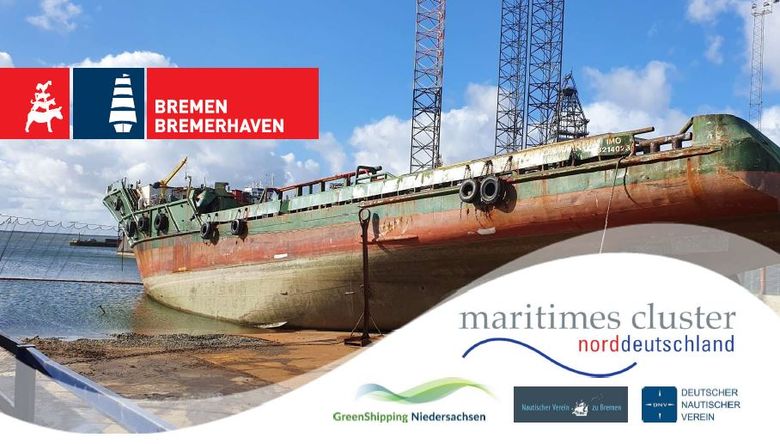19/10/2023 | At an event on November 7, organised by the Maritime Cluster of Northern Germany (MCN), Professor Raimund Bleischwitz will present for the first time a ZMT study on the potential of the state of Bremen as a location for ship recycling. The potential analysis, commissioned by the Bremen's Senaor for Science and Ports (now Senator for Environment, Climate and Science) and the Senator for Economy, Labor and Europe (now Senator for Economy, Ports and Transformation), was conducted under his Bleischwitz' leadership together with ZMT researchers Jannik Höller and Michael Kriegl.
Environmentally sound ship recycling in Germany - What does it take for a successful market ramp-up? is the topic of the event organised by the MCN together with the Deutscher Nautischer Verein von 1868 e. V. (DNV) and the Nautischer Verein zu Bremen.
In addition to Raimund Bleischwitz, representatives from the shipbuilding and steel industry, international law and an NGO will provide introductory impulses in the morning of the event, while the afternoon will be dedicated to four workshops on various topics in the field of ship recycling.
"I expect exciting discussions on ship recycling as an opportunity for the state of Bremen and other locations in northern Germany and look forward to the exchange and the opportunity to present our findings," says Prof. Dr. Raimund Bleischwitz, expert on circular economy and scientific director of ZMT.
WHEN: 07/11/2023 | 10:00 – 15:00
WHERE: Bel Etage, Hutfilterstrasse 24-26, 28195 Bremen | https://www.beletage-bremen.de
REGISTRATION & PROGRAMME: https://www.maritimes-cluster.de/maritimer-kalender/umweltgerechtes-schiffsrecycling-in-deutschland-was-braucht-es-fuer-einen-erfolgreichen-markthochlauf/
About the event Environmentally sound ship recycling in Germany - What does it take for a successful market ramp-up?
Following this year's ratifications by Bangladesh and Liberia, the Hong Kong Convention will enter into force from mid-2025. The EU Ship Recycling Regulation also underwent a public consultation this year on the legal framework and the targets achieved so far. This not only increases the importance of ship recycling, it also creates a favourable window of opportunity for more far-reaching steps. In addition, the steel industry wants to increase its production share of climate-friendly secondary steel. Does this mean that the prerequisites for a successful market ramp-up of ship recycling in Germany in the future are in place?
Only recently the first ship recycling plant in Germany went into operation in Stralsund. What are the prospects in view of the competition between European and international locations? Which legal hurdles need to be overcome and standardised? What technological and infrastructural requirements must be met? Which ships could be recycled in Germany? What options do owners have and what role does the flag or the location of a ship play? These questions are important in order to be able to assess market potentials.





